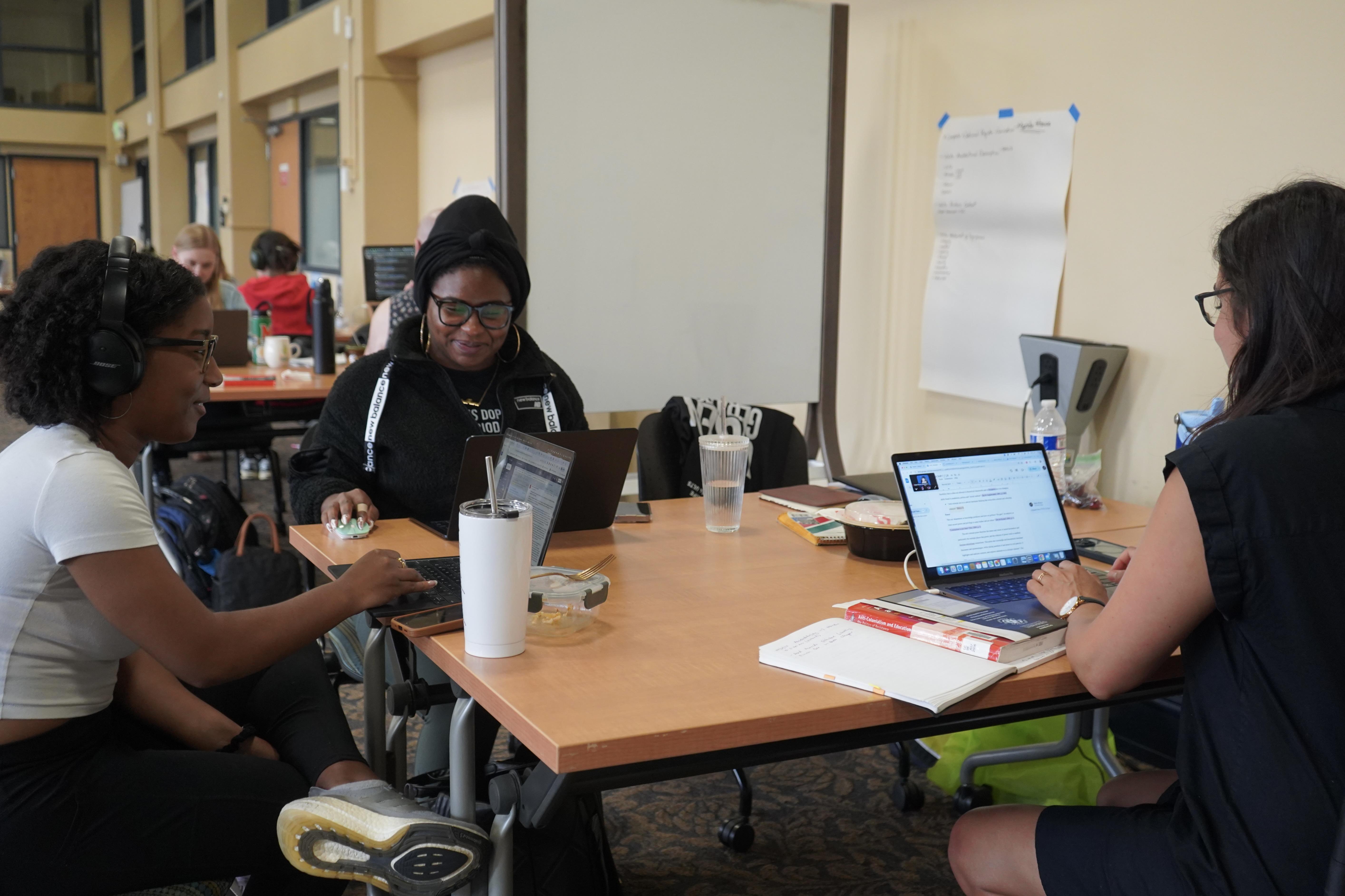Writing Groups
The Center for Writing & Oral Communication (CWOC) supports writing groups for graduate students in a variety of ways, from coordinating groups for interested students to facilitating new groups.

“People writing as part of a community of writers are more likely to learn faster about the conventions and challenges of writing, to support each other at times of blockage and to demystify the process of writing by sharing each others’ successes and failures."-- Sarah Moore (2003) "Writers' retreats for academics: exploring and increasing the motivation to write", Journal of Further and Higher Education, 27:3, 333-342.
Dissertation Success Support Program
The Dissertation Success Support Program is a semester-long program that provides community and writing support for students currently writing dissertations. Over the course of the semester, we'll address skills and strategies for creating writing goals and a writing routine, developing a sense of authority as a writer, understanding and employing various revision strategies, and dealing with feedback in productive ways. Students who participate will learn and polish writing skills that are effective for large projects and receive peer support during weekly meetings. The time commitment for the program includes a weekly hour-long meeting and optional individual writing consultations. Register by January 29 to join the Spring 2026 cohort. Weekly meetings will begin the week of February 2, 2026.
Forming a Writing Group
Interested in forming a writing group? The CWOC is here to help! If you would like to organize a writing group in your department or cohort and would like some support, contact us at gradwritingfellows@umd.edu.
The first step to deciding what kind of writing group is good for you is to consider what you want from a group.
Different writing groups can provide different kinds of support on your writing projects. Most groups work best if they plan to meet on a regular basis (generally, once a week), with a specific length for meetings, and an established period for meetings (for example, all semester or 10 weeks).
Write Together Groups
Best for: Company, accountability, and shared disengagement.
A Write Together group works through shared disengagement. Members disengage from other responsibilities and physically come together to write in a shared space. Similar to the Weekly Write-Ins hosted by the CWOC, a Write Together group selects a regular weekly time to write, a length for each session, and a place to write. In a once a week meeting, group members check in and share their progress on stated goals, start writing, and later share new goals for the upcoming week. Write Together breaks can often include planned, regular breaks and a specified end time with a final sharing of progress toward goals. Group members hold each other accountable for the writing goals members set each week. Meetings focus on reporting productivity rather than delivering feedback.
Size: A group of 2-10 people.
Members: Members can come from any programs on campus and may be loosely affiliated or closely connected or a combination of both.
What can the CWOC do to help? We can help coordinate and organize, as well as walk you through your first meeting.
Peer Review Groups
Best for: Giving and receiving specific feedback on writing.
If you prefer the support of others on the development of your writing and are looking for feedback as you develop your ideas and style, a Peer Review group may fit your needs. These small groups meet regularly to exchange written work and offer feedback on clarity, organization, coherence, or style.
Size: A group of 4-6 people allows for members to have their work read regularly. The minimum requirement for a successful peer-review group is 3 members.
Members: You may want to include only members of your discipline or subdiscipline, particularly if you are interested in the development of topics and content. Or, if you are more interested in focusing on the clarity of the communication, you may want to be in a group that draws members from your college, allowing for some familiarity of content and style, or from across campus.
What can the CWOC do to help? We can help you organize your group and could join a few times to help facilitate the peer-review process.
